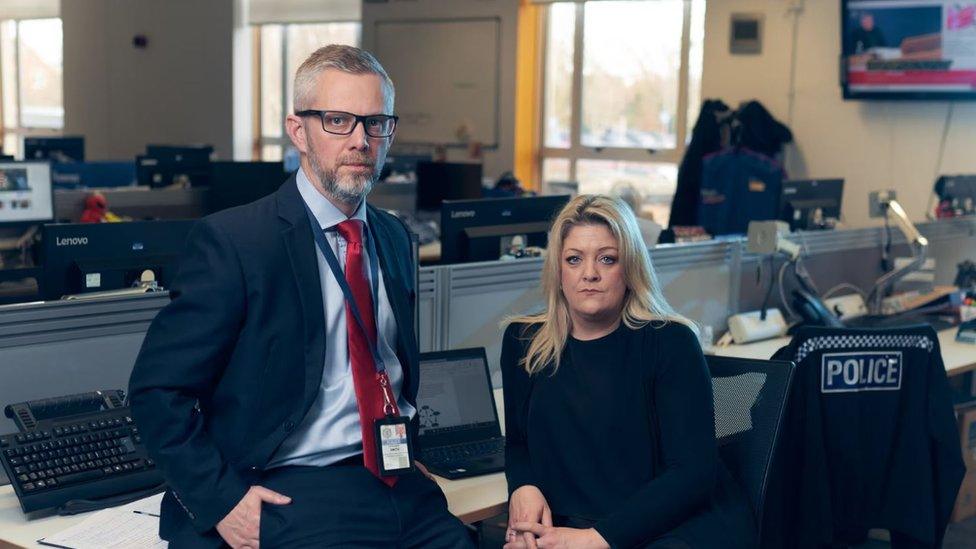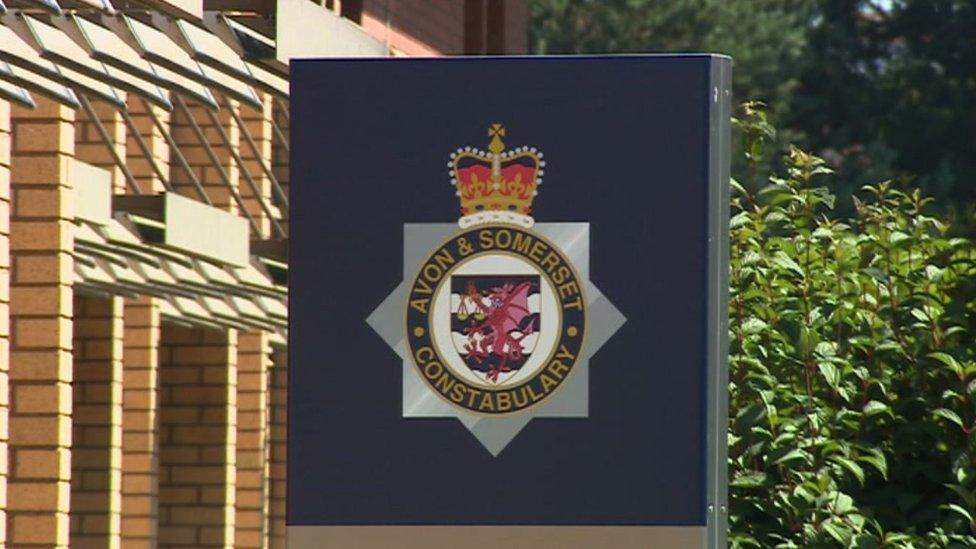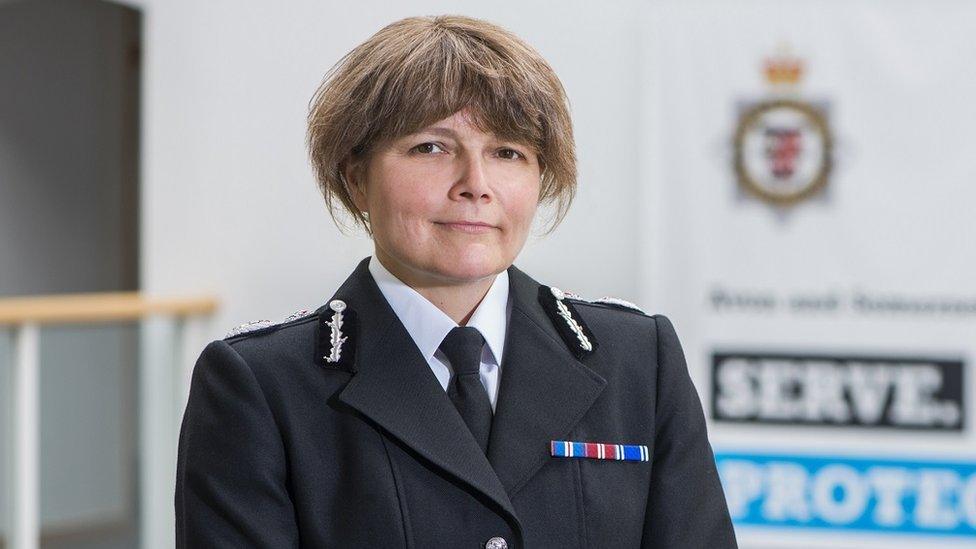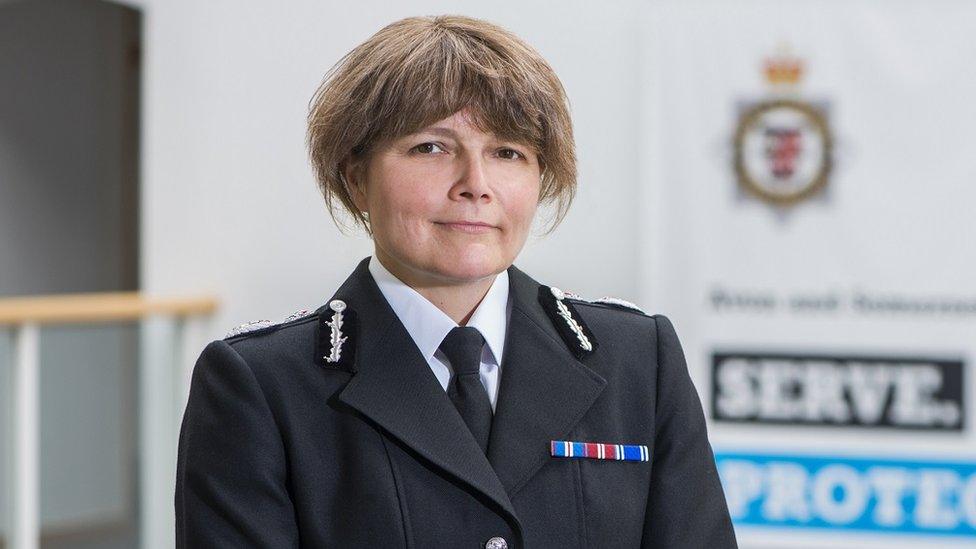Watchdog wants overhaul after Avon and Somerset Police documentary
- Published

The documentary followed the anti-corruption unit at Avon and Somerset Police
A police watchdog says there needs to be a radical overhaul of the system which identifies officers who undermine trust and confidence in the police.
The Independent Scrutiny of Police Powers Panel (ISOPP) said change was needed for the public and the majority of police "who do excellent work".
It comes after Avon and Somerset Police took part in a documentary looking at cases against its own officers.
Avon and Somerset Police said it was committed to changing its culture.
A force spokesperson added that a lot had changed since the cases featured in the series took place so that "damaging attitudes and behaviours have no place to thrive".
"The landscape has changed significantly, and we're more robust than ever at rooting out those who betray the values and standards they're expected to uphold, ensuring they cannot serve again," they said.
The three-part Channel 4 series, 'To Catch A Copper', provided a behind-the-scenes look at the force's anti-corruption unit.
Rank and file police officers criticised the force for taking part in the documentary, saying they felt "angry" and "let down".

Many police officers said they are unhappy that the force took part in the series
The ISOPP, a group which monitors use of force by police offers, was set up by the Avon and Somerset Police and Crime Commissioner for the purposes of accountability and transparency.
Volunteers from diverse backgrounds make up a panel which scrutinises police use of powers such as Tasers and stop and search.
It said while opening up the force to a high level of scrutiny had been "a courageous move" and there was a determination to root out misconduct, it was "shocked and disappointed" by the coverage.
In a statement, ISOPP said: "The documentary laid bare how the Professional Standards Department and even the IOPC (Independent Office for Police Conduct) operate within systems and processes that result in decisions that protect the police rather than the public.
"This has serious implications for policing by consent which is the basic foundation of British policing."
The group said it has scrutinised more than 1,000 cases and had seen examples of exceptional policing, but also "poor and damaging policing".
It added: "We escalate our questions and challenge Avon and Somerset Police and the Police and Crime Commissioner as to what they plan to do in the light of the continued police misconduct that has brought policing into disrepute, damaged trust and confidence - particularly in black communities - and deters good people from joining the police."

Chief Constable Sarah Crew has said the majority of reaction to the TV series had been positive
More than 400 members of the Avon and Somerset Police Federation - which represents constables, sergeants, inspectors and chief inspectors - responded to a survey regarding their thoughts on the documentary.
Members said they felt "appalled" by the decision to take part and some are reconsidering their careers with the force, the federation claimed.
Avon and Somerset Police said the cases shown in the documentary were "challenging and distressing" and that officers had been undergoing training.
A spokesperson added: "While they are the exception and not the rule, we must not be afraid to face into the issues this series raises, so we can create stronger ties with all our communities, especially those who have lower levels of confidence in us. This is at the very heart of policing by consent.
"In order to rebuild the public's trust and confidence in policing, we must continue to be open and transparent about the issues and challenges we face, as well as the actions we're taking to tackle them head-on."

Follow BBC West on Facebook, external, X, external and Instagram, external. Send your story ideas to: bristol@bbc.co.uk , external
- Published30 January 2024

- Published22 January 2024

- Published7 February 2024
